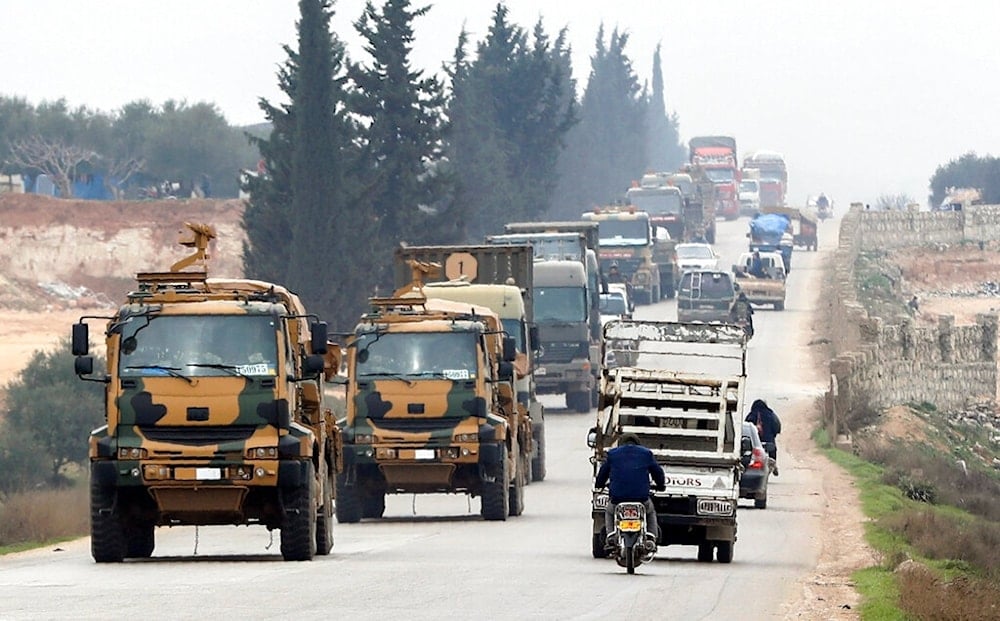SDC condemns Turkish occupation of Ras al-Ain and Tal Abyad
The Syrian Democratic Council marked six years since Turkey’s 2019 invasion of Ras al-Ain and Tal Abyad, condemning ongoing crimes and demographic change.
-

In this Friday, Feb. 28, 2020 file photo, a Turkish military convoy moves in the east of Idlib, Syria (AP)
The Syrian Democratic Council (SDC) issued a statement to the public on the sixth anniversary of the Turkish occupation of Ras al-Ain (Sari Kaniye) and Tal Abyad (Kri Sipi) in northern Syria, condemning the ongoing violations and organized crimes committed by Turkish-backed factions. The Council described these actions as “a clear attempt to erase the historical identity and undermine the diverse social fabric that once represented a model of Syrian coexistence.”
The statement recalled that the Turkish offensive, launched on October 9, 2019, resulted in hundreds of civilian casualties and forced more than 200,000 indigenous residents to flee their homes, in what the Council called “one of the gravest crimes against Syria’s sovereignty and territorial unity.”
It added that systematic violations, including killings, arbitrary arrests, looting, property confiscation, and demographic manipulation, have continued under the occupation, serving Ankara’s agenda in northern Syria.
The Council further noted that the forced resettlement of displaced families from other regions into Ras al-Ain and Tal Abyad constitutes “a flagrant breach of international humanitarian law” and an extension of Turkey’s demographic engineering policies aimed at erasing the historic and cultural character of the two cities.
Ending Turkish occupation: a national priority
The SDC stressed that ending the Turkish occupation and ensuring the withdrawal of all affiliated armed factions is a national duty resting upon the transitional government. It said such a step is “a prerequisite for the success of the political transition and for achieving security and stability across Syria.”
The Council called for the full implementation of the March 10 Agreement, describing it as “the national framework that guarantees Syria’s territorial unity and lays the foundation for a comprehensive solution based on justice and equal citizenship.”
The statement urged the international community to assume its responsibilities by halting ongoing violations in northern Syria, holding perpetrators accountable, and ensuring the safe and voluntary return of displaced residents under both national and international supervision.
Concluding its statement, the Syrian Democratic Council reaffirmed its unwavering commitment to peaceful and political struggle to end the occupation, achieve justice, and build a pluralistic, democratic, and decentralized Syria, one that upholds human dignity and guarantees equality and rights for all citizens without discrimination.

 3 Min Read
3 Min Read










